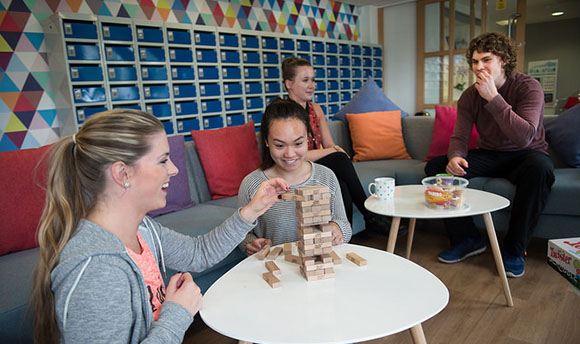Moving abroad isn't easy. No matter how prepared we are, it is inevitable that we'll have some sort of a negative reaction to our new environment. These negative reactions range from behavioural to physical changes and overall, they are described as 'culture shock'. And noticeable or not, culture shock happens to the best of us ...
First of all, it is important to remember that culture shock is very normal and its symptoms will pass. With this knowledge, you are more likely to cope well and get through it. It is scary and sometimes uncomfortable to you and those around you. But after a while, you will be accustomed to your new home and those bad feelings will gradually go away. When I came to the Scotland to study at Queen Margaret University, I was convinced I would be fine.
After all, I am a very independent person and I have sufficiently prepared for this big change. Moreover, I was convinced that life in the UK wouldn't be much different to life in Slovenia. I spoke the language well and was, throughout my childhood, constantly influenced by British and American culture. I was aware of the big differences between my country and my new home, such as driving on the left side of the road, and the stereotype of the much blander food. What I didn't expect were the small things which ended up being the things that threw me off the most. Culture shock reared its ugly head a week after my arrival. Once the initial awe of travelling wore off and I firmly grasped that I will be staying here for a long time, I started experiencing all kinds of strange symptoms. Many things that I took for granted at home were done differently here and I looked at them with scorn. "Shops here close so early. How inconvenient." and "Is this what you call pizza here? This is inedible.". Half of my commentary was a comparison of Slovenia and Britain and I never failed to point out what 'we' did better than the British. In fact, this is one of the most common symptoms of culture shock. A negative reaction to another culture is the tendency to judge something that is different as inferior. Furthermore, I started missing the way things were done at home, even if I wasn't particularly fond of them in the past. People who experience culture shock are highly likely to suddenly look at their own country through rose-coloured glasses. The coffee culture of Slovenia in which I rarely participated before, now seemed like an integral part of life, one which I was missing out on.
I have coped well on some days, and not so well on others. But despite my difficulties, I have now reached a stage of acceptance. Scotland is a place I consider home.
These examples are just a couple of the many symptoms I have experienced in varying degrees. You are likely to go through similar things. My advice for dealing with culture shock is the following:
- Try to suspend judgement and realise that just because you are used to some things being a certain way, this doesn't mean that they are automatically better.
- Connect with other international students and share your experiences with each other. It will likely make you feel better knowing that you are not the only person feeling out of place?.
- Keep in touch with home. Talk to either your family or friends or listen to your country's music. Sometimes just hearing your mother language helps.
Last but not least, take your time and really get to know the new culture. Try the local food, be a tourist for a day and go sightseeing. It will help you view the country in a positive and friendly light and take away some of the stress. Most of all, don't let culture shock get in the way of your experience.







